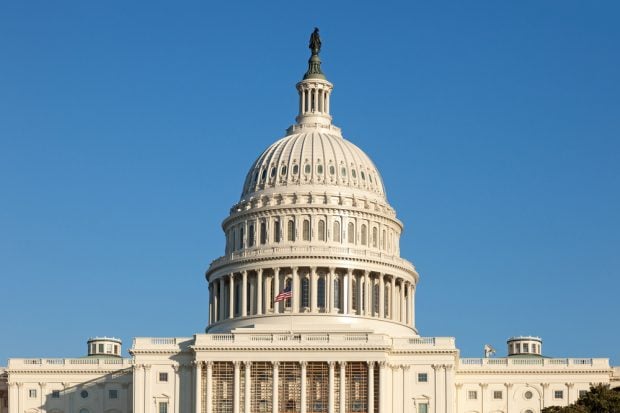 U.S. Capitol building. (Source: Shutterstock)
U.S. Capitol building. (Source: Shutterstock)
The nation's community bankers are calling on Congress to reexamine the credit union tax exemption, contending that the purchase of banks by credit unions are unfair and represent a "weaponization" of the tax advantage.
"Credit union-community bank acquisitions and the rapid expansion of the credit union industry are reshaping the American financial services landscape in a way that puts small business lending experts at risk," Rebeca Romero Rainey, president/CEO of the Independent Community Bankers of America, wrote in a letter this week to the House Ways and Means and Senate Finance committees.
Recommended For You
Those committees are the tax-writing panels on Capitol Hill.
Few members of Congress have expressed concern about the credit union purchases. Rep. Blaine Luetkemeyer (R-Mo.), the ranking Republican on the House Consumer Protection and Financial Institutions Subcommittee said during the last Congress that he was concerned about the purchases. It should be noted that Luetkemeyer's family owns a community bank.
But other members have not picked up on Luetkemeyer's concern.
The ICBA said that the total assets of federally-insured credit unions have grown by more than $610 billion during the past five years. At the same time, membership has grown by 21.7 million, while the total number of credit unions has dropped by 957.
"The largest credit unions are experiencing the fastest growth," Romero Rainey wrote.
She wrote that Congress created the tax exemption to ensure that people of modest means with a common bond have access to credit. She added that while there are thousands of smaller, limited credit unions that adhere to the original vision, today's industry "stands in jarring contrast to the original vision."
In addition to the tax code, the evolution of the credit union industry is, in part, due to "increasingly permissive oversight and regulation from the National Credit Union Administration, which has virtually dissolved field of membership limitations and, more recently, given credit unions authority to raise capital through the sale of subordinated debt securities to venture funds and other outside investors."
Romero Rainey said the cost of the credit union tax exemption has grown and now stands at $2 billion a year, according to the congressional Joint Committee on Taxation.
She acknowledged that Congress may lack the appetite for a plan to create full and immediate tax parity between credit unions and banks.
Indeed, at CUNA's recent Governmental Affairs Conference, Senate Majority Leader Chuck Schumer (D-N.Y.) pledged to fight attempts to eliminate the tax exemption.
However, Romero Rainey outlined several incremental changes that Congress might find more acceptable:
- Taxation of the largest and/or most growth-oriented credit unions.
- Taxation of credit union commercial lending revenue.
- An excise tax on credit union marketing spending that exceeds a certain amount. She cited multi-million-dollar stadium naming rights as an example of this type of spending.
- Allowing states to tax federal credit unions.
- Taxation of credit union-bank acquisitions.
- Increased regulatory scrutiny of credit union-bank acquisitions.
© Touchpoint Markets, All Rights Reserved. Request academic re-use from www.copyright.com. All other uses, submit a request to [email protected]. For more inforrmation visit Asset & Logo Licensing.






